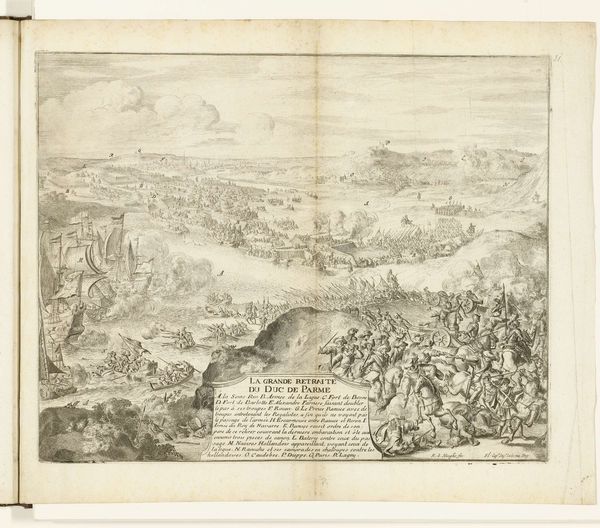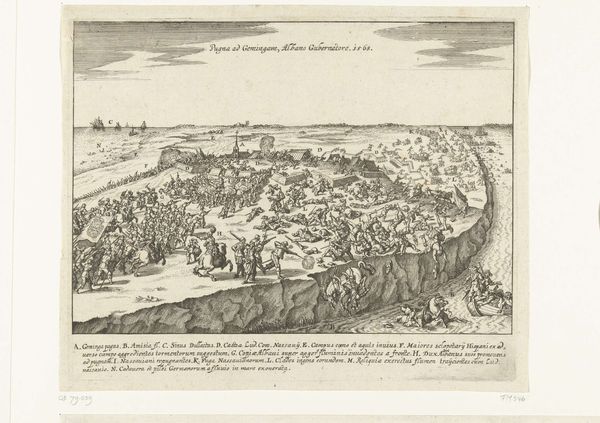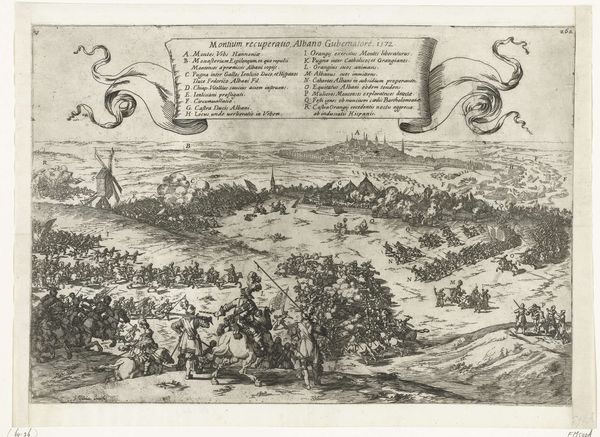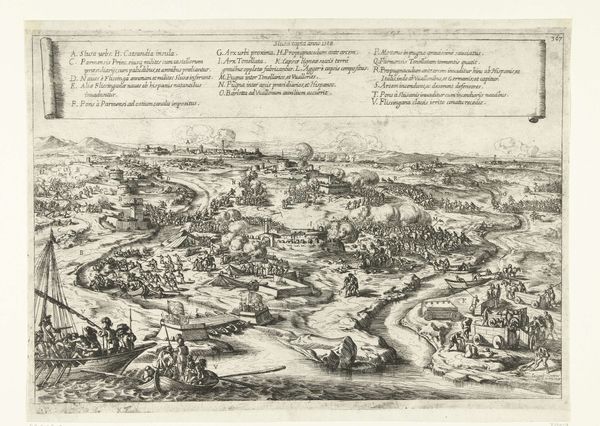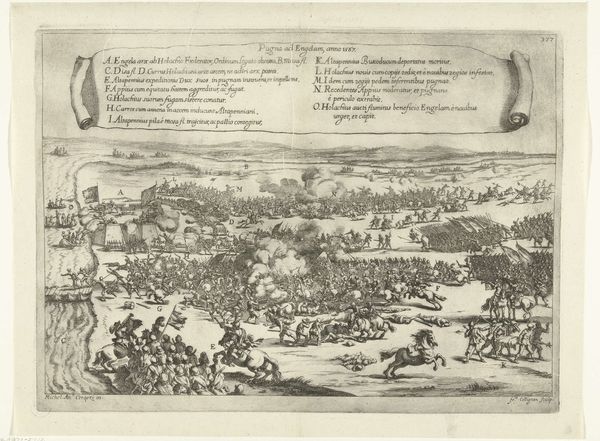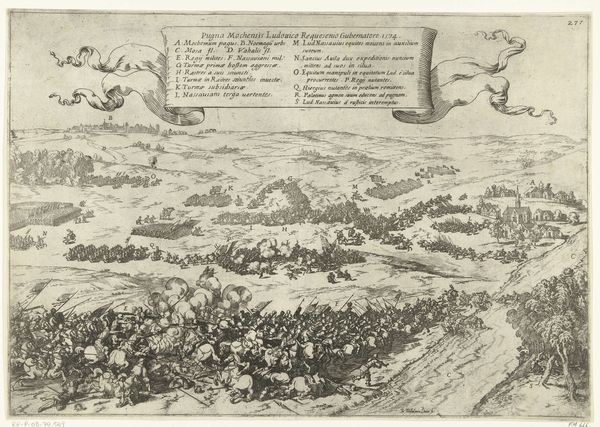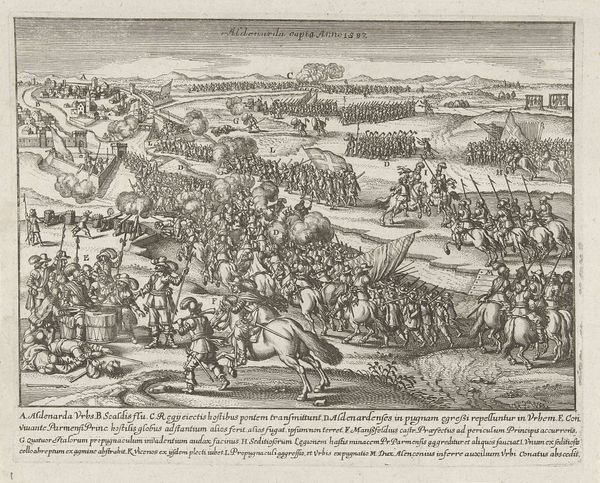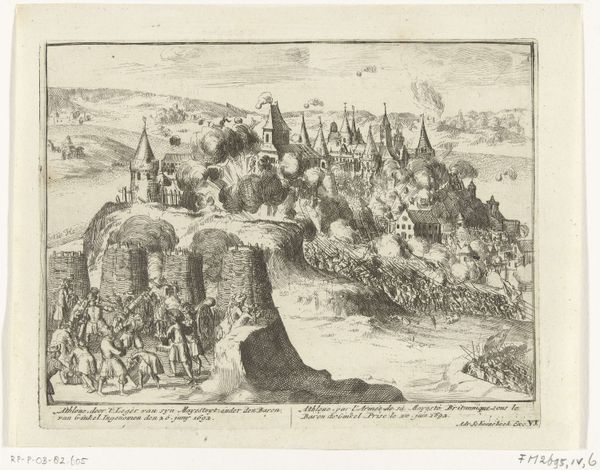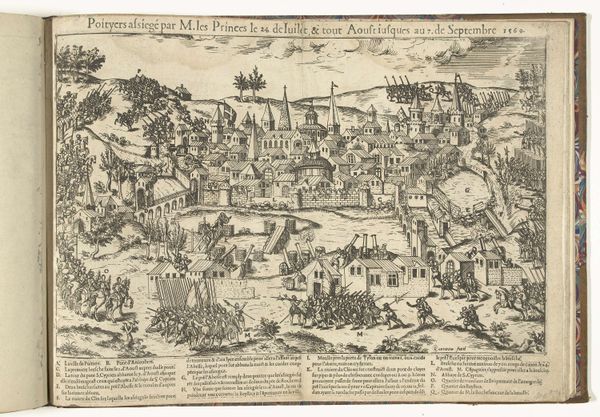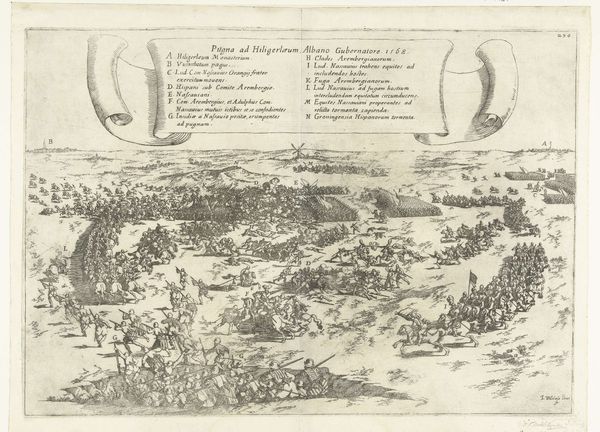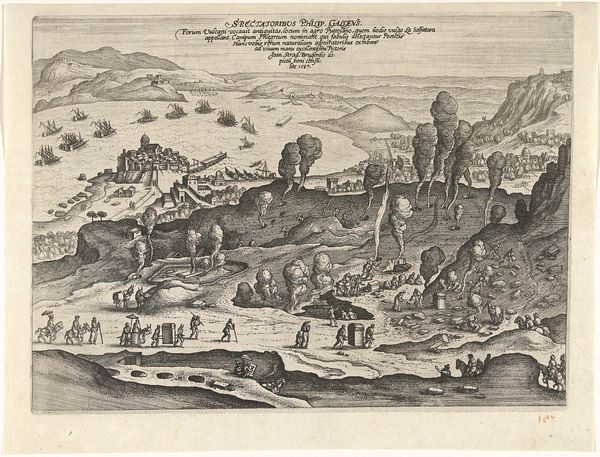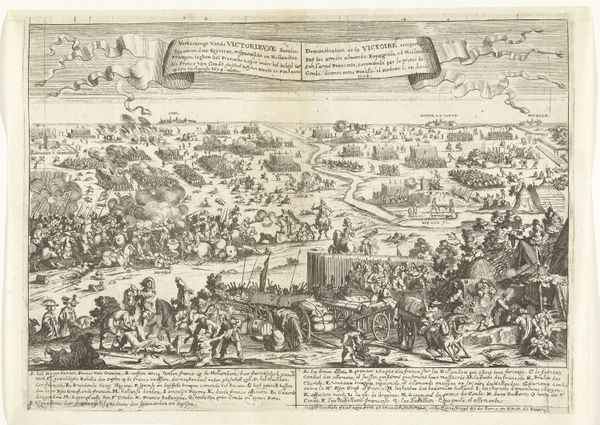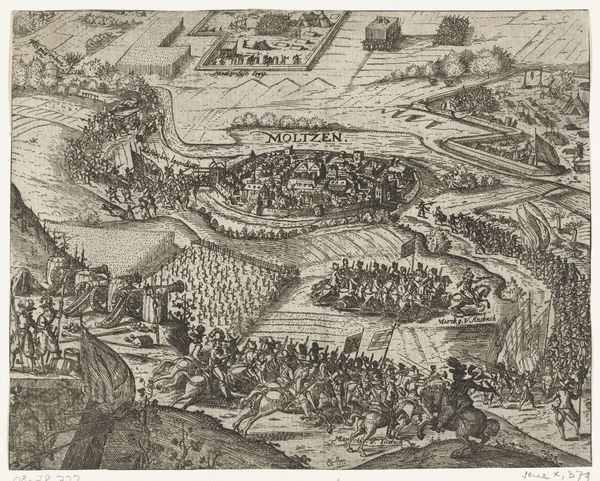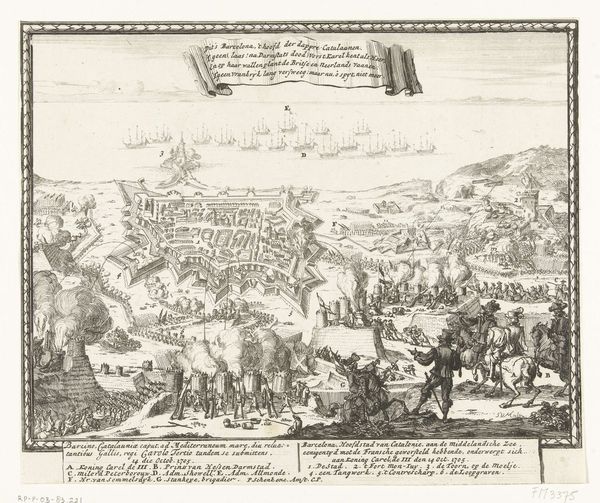
print, engraving
#
narrative-art
#
baroque
# print
#
cityscape
#
engraving
Dimensions: height 215 mm, width 293 mm
Copyright: Rijks Museum: Open Domain
This print, *Optocht van Abessijnen*, was made by Romeyn de Hooghe, using etching – a chemical process that produces a drawing in fine lines. The copperplate from which this print was pulled was made using acid to ‘bite’ into the metal, allowing for highly detailed drawings to be reproduced many times over. Look closely, and you will see an entire social world laid out before you, the composition teeming with people, animals, tents and mountainous landscapes in the background. Hooghe was one of the most prolific printmakers of his day, a key figure in the image economy of the Dutch Golden Age. The physical character of the print – its reproducibility and portability – meant that an image like this one could circulate widely, and become a means of shaping public opinion. In that sense, it is less a window onto the world than a contribution to it. By considering how prints were made, and how they worked in society, we begin to appreciate how images participate in the world around them.
Comments
No comments
Be the first to comment and join the conversation on the ultimate creative platform.
